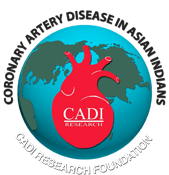Cholesterol Lowering Diet
- Eating a predominantly vegetarian diet focused on lowering cholesterol — and getting advice on how to do so effectively — can drop LDL levels more than a diet focused only on reducing saturated fat, researchers found.
- A diet rich in cholesterol-lowering foods dropped LDL by 13% to 14% over six months, depending on the level of accompanying counseling, compared with a drop of just 3% for patients on a control diet, David Jenkins, MD, of St. Michael’s Hospital in Toronto, and colleagues reported in the August 24/31 issue of the Journal of the American Medical Association.
- “Our data demonstrate the cholesterol-lowering potential of a dietary portfolio intervention that counsels participants to increase consumption of cholesterol-lowering foods denoted by the FDA to have a heart-health benefit,” they wrote.
- Foods with known cholesterol-lowering properties — such as nuts, soy, and barley — have been shown to be effective in lowering serum cholesterol in metabolically controlled conditions, the researchers said.
- So they assessed whether eating a diet consisting of these foods decreased LDL cholesterol compared with a control diet that emphasized eating fiber and whole grains.
- They enrolled 351 patients with hyperlipidemia at four centers across Canada, who were given one of three diet plans: a “dietary portfolio” that emphasized plant sterols, soy protein, viscous fibers, and nuts with either two counseling sessions or seven sessions over six months, or a control diet focused on lowering saturated fats without counseling. Control patients were not allowed to eat foods in the intervention portfolio, the researchers said.
- The 51 patients who were taking statins before the study had discontinued them at least two weeks prior.
- Mean LDL cholesterol at baseline was 171 mg/dL.
- In the modified intention-to-treat analysis of 345 patients, the researchers saw significant reductions in LDL cholesterol only for patients in both arms of the portfolio diet: a 13.8% reduction for those who had intensive counseling and a 13.1% drop for those with “routine” counseling (P<0.001 for both) compared with a nonsignificant 3% drop for those on the control diet.
- Jenkins and colleagues said the LDL reductions were “approximately half those observed with early statin trials, that were associated with 20% reductions in coronary heart disease mortality.”
- “Further study is needed to determine whether cholesterol reduction using these portfolio components is associated with lower rates of coronary heart disease events,” they wrote.
- They also noted that more frequent visits to the clinic appear to be unnecessary in achieving significant reductions in LDL. “The near maximal effectiveness of only two clinic visits enhances the suitability of this dietary approach for clinical application,” they added.
- The portfolio diet also improved the ratio of total cholesterol to HDL cholesterol, dropping 8.2% for the routine counseling and 6.6% for the intensive counseling (P<0.001 for both). Those reductions were significantly greater than those for the control diet, but weren’t significantly different from each other, the researchers said.
- The cholesterol-lowering diet also reduced the calculated 10-year heart risk by 10.8% for those on routine counseling and by 11.3% for those on intense counseling, which was significantly greater than the nonsignificant 0.5% drop in risk for those on the control diet.
- The researchers noted that reductions in LDL were associated with dietary adherence for those on the cholesterol-lowering diet (P<0.001).
- “Convincing people to change dietary patterns is difficult, much less convincing them to become vegetarians,” Jana Klauer, MD, a primary care physician in New York, said in an email to MedPage Today and ABC News. “But it can be done — just look at Bill Clinton,” noting the former president and heart disease patient who recently became a vegan in order to glean its benefits to lower his cardiovascular risk.
- But Merle Myerson, MD, EdD, of St. Luke’s and Roosevelt Hospitals in New York, said the counseling component is perhaps the trickiest part.
- “Medicare and most insurances do not reimburse for one session of nutrition counseling, unless you have diabetes or end-stage renal disease, much less the kind of patients in this study,” she said, adding that she doubts patient adherence would be sufficient in the long run.
- The study was limited because the intervention was complex and lipid-lowering effects couldn’t be pegged to specific components. Also, they cautioned about its high overall dropout rate of 22.6%, though they noted this is “an attrition rate common to dietary studies at these levels of intensity.”
- As well, the study may lack generalizability because its population was predominantly white, with low-to-intermediate risk of cardiovascular disease, and may not translate to those with a higher risk of disease.
- Still, they concluded that “a meaningful 13% LDL reduction can be obtained after only two clinic visits of approximately 60- and 40-minute sessions.”
- The study was supported by CRCE of the Federal Government of Canada, CIHR, AFM Net, Loblaw Brands, Solae, and Unilever, and St. Michael’s Hospital. Unilever provided the margarines used in the study, and Can-Oat Milling provided an oat bran.
- The researchers reported relationships with Unilever, Sanitarium Company, California Strawberry Commission, Loblaw Supermarket, Herbal Life International, Nutritional Fundamental for Health, Pacific Health Laboratories, Metagenics, Bayer Consumer Care, Orafti, Dean Foods, Kellogg’s, Quaker Oats, Procter & Gamble, Coca-Cola, NuVal Griffin Hospital, Abbott, Pulse Canada, Saskatchewan Pulse Growers, and Canola Council of Canada, the Almond Board of California, International Tree Nut Council, Barilla, Oldways, Dean Foods, Haine Celestial, Alpro Foundation, Danone, Enzymotec, Atrium Innovations, and Viterra.
Sources
Primary source: Journal of the American Medical Association
Source reference: Jenkins DJA, et al “Effect of a dietary portfolio of cholesterol-lowering foods given at two levels of intensity of dietary advice on serum lipids in hyperlipidemia” JAMA 2011; 206(8): 831-839.

